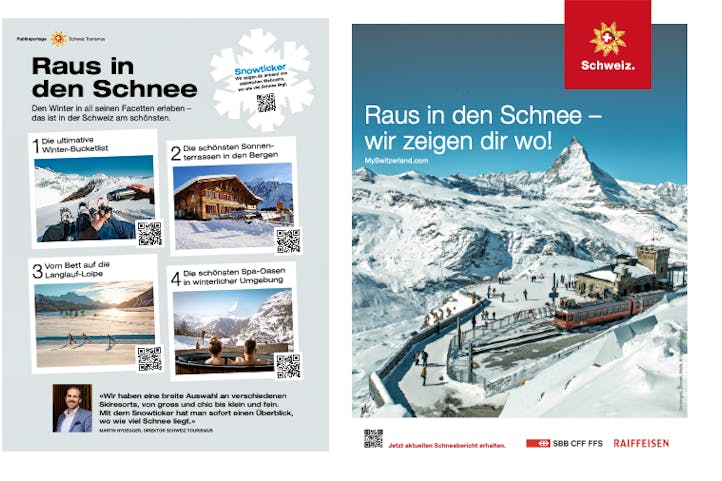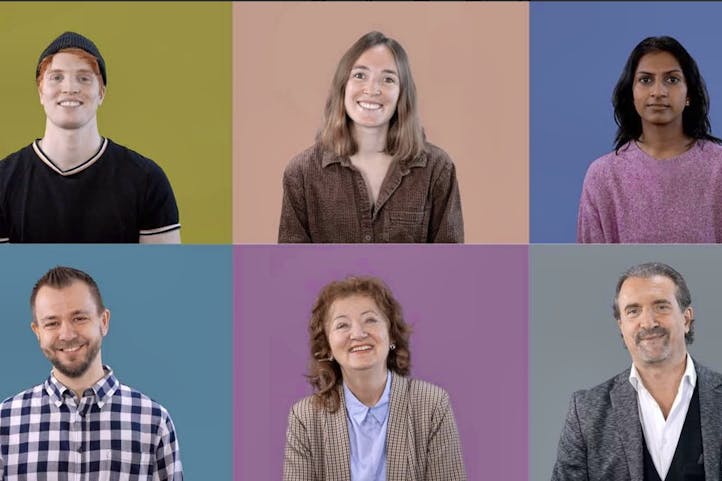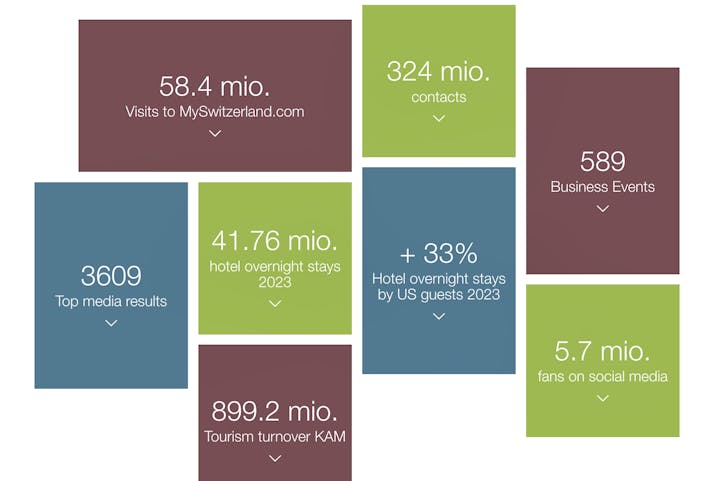Find out more about:
ChatGPT is based on the GPT (Generative Pre-trained Transformer) language model, which uses deep learning to generate a human-like natural language.
The company OpenAI made ChatGPT available to the public for the first time in November 2022 and recorded 180 million users worldwide by the end of 2023.
More and more companies are integrating GPT models into their products and services: Microsoft, for example, is investing heavily in artificial intelligence (AI), including with its own search engine Bing, which has been improved by GPT technology. Google, the most popular search engine, has developed its first chatbot model of its own with Bard, and presented the new AI model Gemini in December 2023.
Thanks to ChatGPT and co., AI has finally arrived in the general public in 2023. Stefan Künzle, Head of Digital Management, explains what opportunities this presents for the tourism industry and what attitude Switzerland Tourism (ST) has towards AI.

Stefan Künzle
Head of Digital Management
Stefan Künzle, the digital team at ST 2023 has been working intensively on the potential applications of AI in tourism. Who are the key players?
We differentiate between core and support processes for applications. The core processes are about how we use AI to enable new forms of interaction with potential guests in order to respond even more precisely to their questions and wishes. When it comes to support processes, it is important to critically scrutinise “daily business”: Where can AI be used to increase efficiency? Specifically, we were able to achieve a high level of automation in translation, for example, but also in the creation of advertising material. On the other hand, we are specifically looking at the possibilities of making market research data accessible to all employees via an AI chatbot.
The Swiss tourism industry is very diverse – from mountain pubs and international hotel chains to family ski resorts. Who should use which AI tools?
I am convinced that this technological development in particular offers enormous potential for all companies, whether large or small. Thanks to cloud-based services, tools can already be used profitably with moderate investments. Specifically, I recommend first looking at the basics of AI, then scrutinising internal routines and finding out how AI can help to make them more efficient. Especially in companies where scalability has previously been a challenge, AI can contribute to the solution.
What do I have to do if I want my hotel or touristic offer to appear in personalised travel recommendations from ChatGPT?
The structure of the LLMs (Large Language Models) is a black box or intellectual property of OpenAI and other providers of LLMs. On the one hand, these LLMs utilise publicly available information (similar to Google Search), on the other hand, they learn from the interactions with users on a daily basis. My tip here is to have a close look at the quality and authenticity of your own content, and to prepare to make this content readable for third-party systems in a structured way.
How does ST use ChatGPT and other AI tools? Are there any projects planned?
ChatGPT probably offers the most prominent access to an LLM. At the same time, it must be emphasised that countless LLMs have now been created or are in the process of being created. ST deals specifically with “Conversational AI” to offer guests a contextualised and personalised experience on MySwitzerland.com. To achieve this, we rely on OpenAI, but enrich the content with real-time data such as the SBB timetable, hotel availability or the winter sports report. On the other hand, we are evaluating an in-house “GPT system”, with which we would like to utilise the advantages of an external LLM, but on the other hand, can implement important rules. For example, external queries to an LLM are anonymised at certain points to ensure the protection of intellectual property.
ChatGPT and co. offer many opportunities. What about the threats to Swiss tourism?
This is an extremely important question. After the initial hype, I now realise that people are increasingly and justifiably concerned about governance. Companies, especially in tourism, must not falsify authenticity under any circumstances. Switzerland in its natural and genuine form is perfect for attracting new guests. ST is committed to never advertising with artificially generated content. Another danger “lurks” in the protection of intellectual property. Precisely because AI tools are so low-threshold, awareness must be raised that all queries continuously train an external LLM. So extreme caution is required when it comes to deciding what information should leave a company. As a rule of thumb, we advise our colleagues to only share information on ChatGPT that they would also publish on social media without hesitation.










